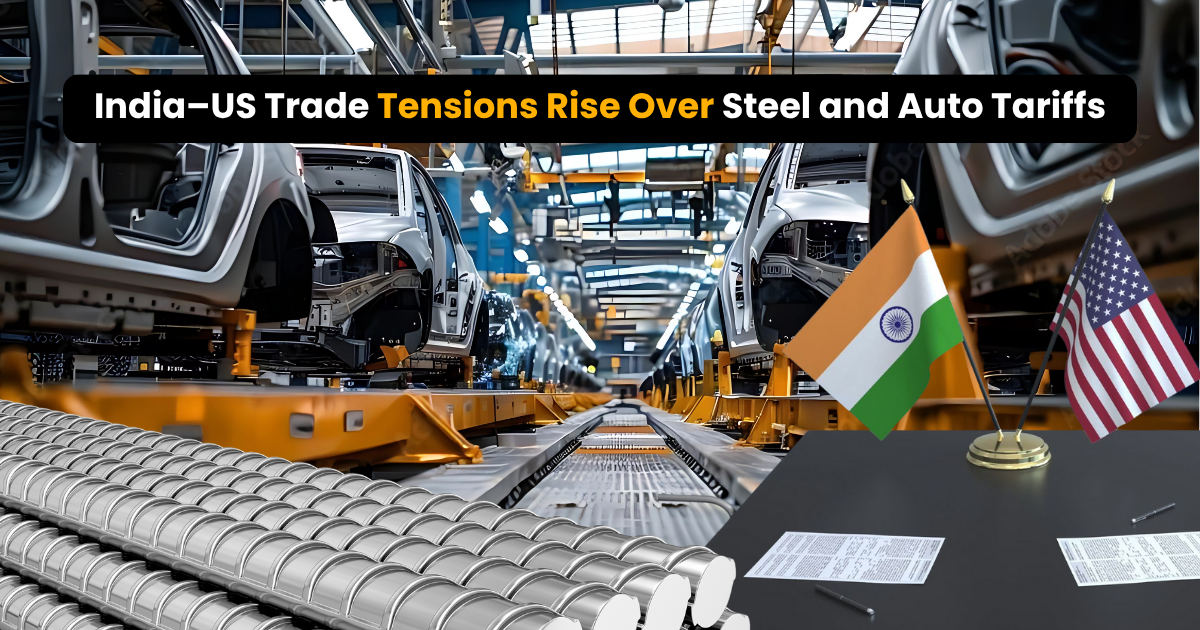India–US Trade Tensions Rise Over Steel and Auto Tariffs NMDC Limited reports a 38% drop in Q4 FY24 consolidated net profit RINL to Raise $23 Million Through Land Sales Amid Crisis

The United States has formally challenged India’s plans to impose retaliatory tariffs on American steel, aluminum, and auto products, asserting that India has “no legal basis” under World Trade Organization (WTO) rules to proceed with such measures. The US contends its original tariffs—imposed under Section 232 citing national security concerns—are protected by the WTO’s essential security exceptions.
India’s Response:
India, however, argues that these tariffs have severely impacted its exports. According to estimates submitted to the WTO, Indian exports worth over $10 billion have been adversely affected—$7.6 billion in steel and aluminum and $2.89 billion in auto parts. In response, India has proposed retaliatory duties of $3.82 billion and requested formal dispute consultations under WTO guidelines.
This escalation comes amid ongoing negotiations for a potential bilateral trade agreement between the two nations. While the US pushes for faster resolution and has offered certain exemptions, India remains firm on safeguarding its strategic sectors and ensuring balanced outcomes.
The matter is now under review at the WTO, where India’s proposal and the US objection will be evaluated. India’s move to initiate retaliatory action is seen as a strategic effort to maintain leverage during trade talks, particularly around tariffs and market access for its key sectors like pharmaceuticals, steel, and automobiles.
Both countries maintain their commitment to dialogue, but the growing legal and economic friction underscores the complexity of resolving trade disputes in a politically sensitive environment.
Also Read : Biden administration to ease EV rule on Tailpipe Emissions Indian Steel Industry Struggles Amid U.S. Tariff Challenges